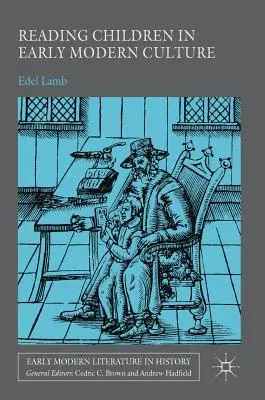Edel Lamb
(Author)Reading Children in Early Modern Culture (2018)Hardcover - 2018, 29 January 2018

Qty
1
Turbo
Ships in 2 - 3 days
In Stock
Free Delivery
Cash on Delivery
15 Days
Free Returns
Secure Checkout

Part of Series
Early Modern Literature in History
Print Length
258 pages
Language
English
Publisher
Palgrave MacMillan
Date Published
29 Jan 2018
ISBN-10
3319703587
ISBN-13
9783319703589
Description
Product Details
Author:
Book Edition:
2018
Book Format:
Hardcover
Country of Origin:
NL
Date Published:
29 January 2018
Dimensions:
21.01 x
14.81 x
1.6 cm
ISBN-10:
3319703587
ISBN-13:
9783319703589
Language:
English
Location:
Cham
Pages:
258
Publisher:
Weight:
476.27 gm